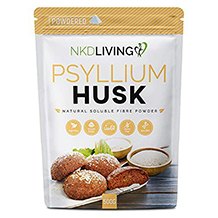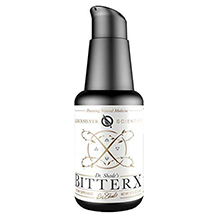Turmeric capsule purchasing advice: how to choose the right product
- What you need to know
- Turmeric capsules are a popular dietary supplement that is considered to have health benefits.
- The active ingredient curcumin has anti-inflammatory and antioxidant effects.
- Turmeric has the potential to have a healing effect on many medical conditions. However, clear scientific findings are not yet available.
- Depending on the manufacturer, the capsules can differ in terms of ingredients, quality and dosage.
- Although turmeric does not have any dangerous side effects, some groups of people such as pregnant women, nursing mothers or people allergic to piperine should avoid it.
Turmeric as a food supplement
Anyone who has ever cooked or eaten a yellow curry has already encountered turmeric. In nature, the plant appears in the form of a perennial. Cooks and scientists are mainly concerned with the root, in which the curcumin is concentrated. The rhizome resembles ginger in appearance, but is characterised by a darker yellow that stains very strongly.
Turmeric – botanically called “Curcuma longa”, is not only popular as a spice, but also as a food supplement. Anyone familiar with the traditional Indian healing art of Ayurveda knows that all kinds of medicinal effects are attributed to the root. However, many of these healing effects have not yet been scientifically proven. Accordingly, turmeric is not a medicine, but a food supplement. Anyone who wants to supplement their diet with turmeric should therefore inform themselves in advance about the possible effects. Turmeric produces no or only minimal side effects. So even if the desired effect is not achieved, the remedy should not do any harm.
What are the advantages of turmeric capsules?
The most popular way to take turmeric as a concentrated food supplement is in the form of capsules. These contain curcumin extract, the active ingredient of the turmeric root, usually in combination with piperine extract. The plant substance piperine is extracted from black pepper and increases the bioavailability of curcumin by about 2,000 percent. The piperine is necessary because otherwise not enough active ingredient would reach the body. Turmeric is poorly absorbed by the human body because of its low water solubility.
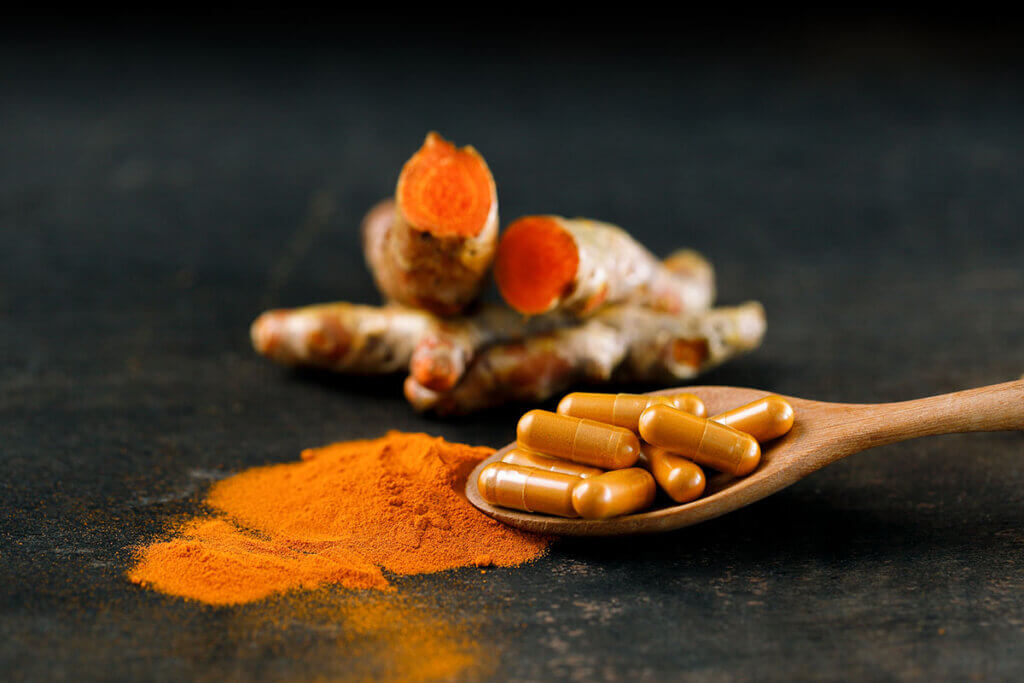
The purpose of the preparation is to have a general health-promoting effect on the one hand and to counteract certain complaints or diseases on the other. The main advantage of capsules is that a significantly higher dosage can be achieved with them than with unprocessed turmeric or turmeric powder. The addition of piperine also makes them much more effective. Turmeric is supplemented to fight and prevent numerous diseases: cancer and Alzheimer’s are diseases for which curcumin is potentially effective. Patients with inflammatory diseases in the intestines, a weak immune system and digestive problems also hope for relief from the remedy.
What happens to turmeric after ingestion?
Turmeric capsules contain concentrated turmeric extract. If you want to benefit from the active ingredient, you should take turmeric in the form of capsules, as it is almost impossible to take an effective amount of curcumin otherwise. The capsule, which is usually prepared from animal gelatine, encapsulates the active ingredient. When ingested, it passes through the stomach and dissolves in the intestine, from where the active ingredient enters the bloodstream. In this way, the active ingredient itself can reach the extremities, where many patients rely on it to fight arthritis.
What effect does turmeric have on the human body?
Turmeric has many different effects. Numerous studies attribute health-promoting and even healing properties to the root. However, the effects have not yet been sufficiently proven scientifically. Extensive clinical studies are lacking, which is why doctors do not prescribe turmeric as a remedy. Nevertheless, the active ingredient curcumin is promising. Its most important characteristics are its antioxidant and anti-inflammatory properties. These mean that curcumin has the potential to be helpful, if not curative, in many diseases. It also has analgesic and digestive properties.
What diseases can curcumin help with?
Initial studies have already investigated the potential of curcumin to cure diseases. These include some of the listed diseases. Nevertheless, the number of study participants has so far been too small for meaningful results. Other healing effects have been tested on laboratory rats, but long-term studies with humans are lacking. Thus, the healing effect of curcumin has not yet been proven beyond doubt, but it shows a lot of potential in studies. Last but not least, curcumin has antioxidant and anti-inflammatory properties, which can lead to the alleviation of certain disease symptoms. Especially in cases of local inflammation and digestive processes, many patients experience relief and reduced pain.
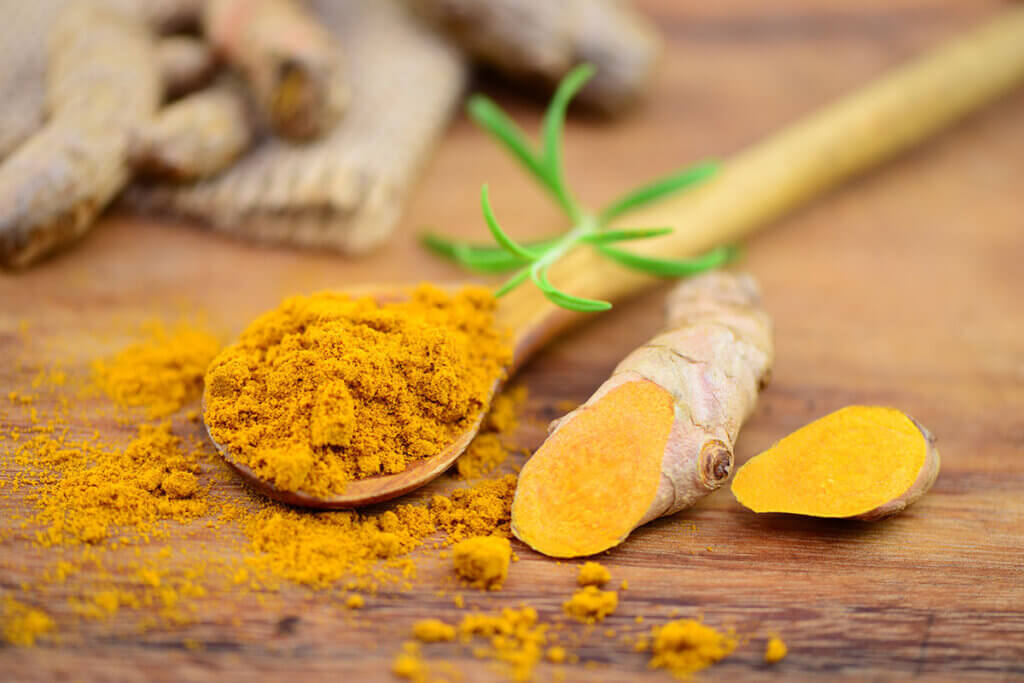
Cancer
Curcumin can inhibit the spread of cancer cells. It may even be involved in killing cancer cells. It is also thought to support chemotherapy and radiotherapy by preventing cancer cells from developing resistance to the therapies. The drug seems to be most promising against colorectal cancer. However, it could also work against cancers of the breast, skin, lung, liver, uterus and prostate.
Brain diseases
Another interesting aspect is the presumed effect of curcumin on brain diseases. In the first place, it could be helpful in combating and preventing Alzheimer’s disease. The reason for this is its anti-inflammatory and antioxidant properties. Since inflammation and oxidation play an important role in the occurrence of Alzheimer’s, it is reasonable to assume that curcumin could help against Alzheimer’s disease. In addition, curcumin can increase BDNF (“brain-derived neutrophic factor”) levels. This is a protein closely related to nerve growth factors. Decreasing BDNF levels are a sign of brain diseases such as Alzheimer’s and depression. The possibility that curcumin increases serotonin and dopamine levels, which are often referred to as the happiness hormones, also supports its effectiveness against depression.
Arthritis
Another disease that curcumin seems to be effective against is arthritis. Initial studies do not show that the substance counteracts the disease, but it does fight symptoms such as pain and local inflammation. So arthritis is another case where curcuma’s anti-inflammatory properties could be used.
Heart disease
Through the combination of its antioxidant, anti-inflammatory and anti-thrombotic properties, curcumin can help strengthen the cardiovascular system, lower cholesterol levels and prevent heart disease. It also sometimes helps regulate blood pressure and blood clotting.
Digestion
Even in digestive processes, turmeric’s anti-inflammatory abilities may show benefits, for example in fighting gastritis or intestinal inflammation. Furthermore, anyone who likes to eat fatty meals should either season them with turmeric or take a preparation. Curcumin stimulates the liver to secrete bile acid, which binds food fats and makes them digestible. Increased bile acid secretion has the effect of relieving flatulence and bloating. In addition, heating turmeric in oil increases the bioavailability of the active ingredient. Seasoning fatty food with turmeric makes sense anyway.
Do turmeric capsules have side effects?
Even though not all of the positive effects attributed to curcumin have been sufficiently proven, taking them is often recommended. It does not seem to have any harmful side effects even in larger quantities. Those who use turmeric merely as a spice have nothing to fear. Because of the limited bioavailability of turmeric and the relatively low concentration of the active ingredient in the rhizome, it is unlikely that a potent amount of curcumin will be absorbed by the body through food. Some groups of people are nevertheless advised not to take curcumin supplements.
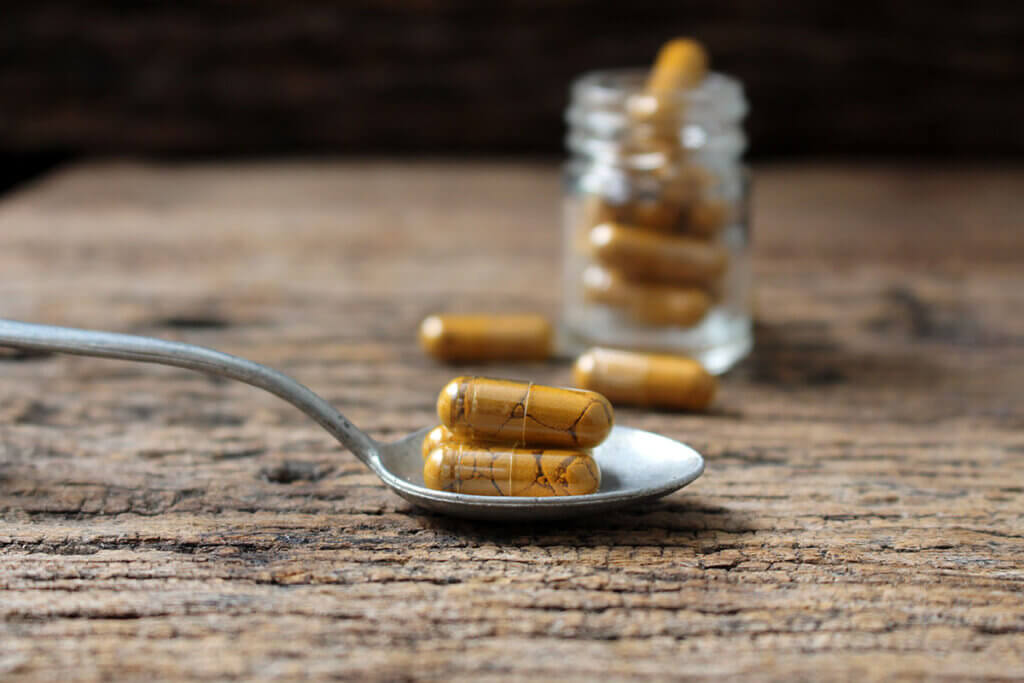
Pregnant and breastfeeding women
Pregnant and breastfeeding women should not take curcumin for precautionary reasons. Turmeric can increase menstrual bleeding and even cause bleeding in the uterus. This can cause serious side effects in pregnant women, in the worst case abortion. Women who are breastfeeding are advised not to take turmeric capsules, because any substance a woman ingests while breastfeeding can get into the breast milk. However, the effect of turmeric on infants is unexplored, so caution is advised.
However, these recommendations are about the high-dose consumption of turmeric as a food supplement. Those who occasionally season with turmeric should not worry. In that case, the amount is too small to cause serious side effects, especially if no black pepper is used in addition.
People allergic to piperine
It is self-explanatory that people who have a piperine allergy should not take turmeric preparations. Piperine ensures the higher bioavailability of the active ingredient and is therefore present in most preparations. Instead, allergy sufferers should reach for turmeric capsules with lecithin, which replaces piperine in its function.
People with gallstones and liver damage.
Turmeric contributes to the increased secretion of bile acids. Thus, while it helps digest high-fat meals, it can harm people with gallstones. Gallstones can become trapped due to the increased bile. This prevents bile flow, which can cause biliary colic. Moreover, curcumin can further attack a sensitive liver. So if you have gallstones or liver disease, you should consult a doctor or simply avoid the supplement. Seasoning with turmeric is still possible, however.
People taking blood-clotting medication
Turmeric makes blood clotting more difficult. While this property can be beneficial for many heart conditions, patients should be cautious when taking blood-clotting medication. Turmeric preparations could intensify the effect, resulting in bruising or bleeding. Anyone taking blood-clotting medication should therefore only take turmeric capsules after consulting a doctor.
What types of turmeric capsules are there?
Turmeric capsules from different suppliers are very similar. They mainly contain turmeric root powder, turmeric extract, curcumin and piperine. Some manufacturers add minerals and vitamins in addition to the main ingredients. Their advantage is that consumers can save on additional food supplements. Nevertheless, consumers should pay attention to the dosage of both these substances and the main active ingredients, as the former may be too high and the latter too low.
One of the biggest differences between turmeric capsules is the substance used to produce the capsule shell. This can be vegan or made from animal products such as gelatine. Capsule shells made from gelatine are usually cheaper. They are also more suitable for allergy sufferers, as it is mainly plant-based products that trigger allergies. On the other hand, it is more likely to encounter poor quality standards. Gelatine-coated capsules also have a worse environmental record than most plant-based alternatives.
There is also a wide range of products for vegetarians and vegans. Manufacturers often use soy products for their vegan turmeric capsules. However, soy is a possible allergen. Allergy sufferers should therefore read the package inserts carefully. Advantages of vegan capsules are the environmental balance and the animal welfare factor.
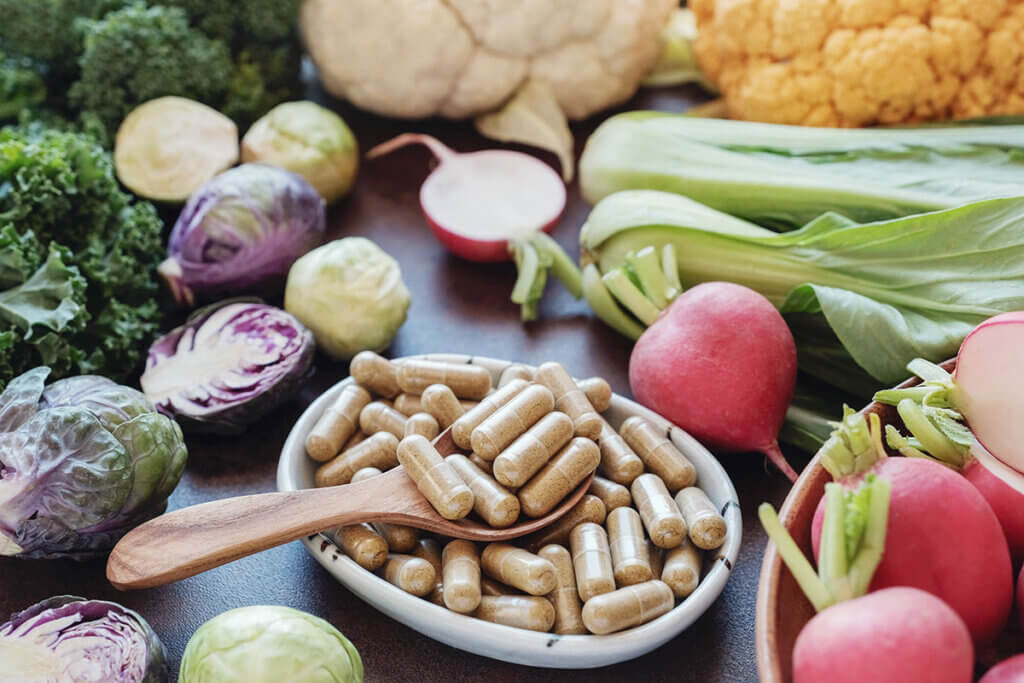
What should be considered when buying?
The most important criteria for buying turmeric capsules are the ingredients. For example, capsules without piperine cannot develop their full effect, as piperine is essential for the bioavailability of curcumin. Likewise, attention must be paid to the quality and dosage of the ingredients. The identification of curcumin as a food additive is “E100”.
What ingredients should turmeric capsules have?
Ingredients that should not be missing from turmeric capsules are curcumin and piperine. Instead of piperine, to which some people are allergic, some capsules contain lecithin. This active ingredient also increases the bioavailability of curcumin. Another version of turmeric as a food supplement is liquid micelle turmeric, which has increased bioavailability with the help of micelles.
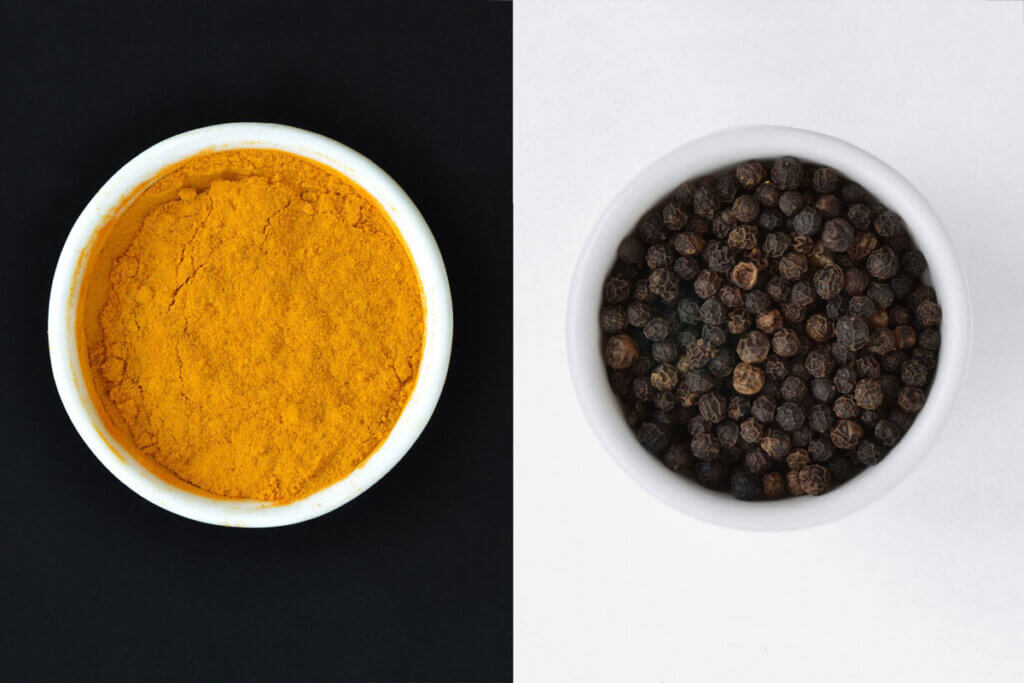
Many manufacturers also add substances such as vitamins and minerals to the capsules, which is unproblematic as long as the dosage is appropriate. Under no circumstances should the preparation be contaminated with pesticides and heavy metals. Also undesirable are additives such as flavourings, fillers, colourings, preservatives, magnesium stearate and GMOs, i.e. genetically modified ingredients. According to the consumer advice centre, the risk of such substances appearing in herbal food supplements is highest in foreign products sold via the internet.
The purity of the turmeric preparation is evident from the corresponding seals on the packaging. Manufacturers often have their products tested by laboratories on their own behalf. It is safest to use products that have been laboratory-tested according to the global quality standard for testing and calibration laboratories ISO/IEC 17025 and are marked accordingly. Another indication that the product is of high quality is that organic turmeric was used for the high-dose extract. In the case of food supplements, too, the best choice is a product with an organic label with regard to undesirable additives.
Also pay attention to the dosage in which these ingredients are represented. Curcumin, for example, should be present in sufficient quantities to have the desired effect. This does not mean that the capsule with the most curcumin is also the best. Besides curcumin, turmeric powder also contains essential oil and proteins, which also benefit health. Ideally, therefore, both turmeric powder and turmeric extract, which contains mainly curcumin, are present.
What distinguishes a high-quality turmeric capsule?
First and foremost, the quality of the turmeric and pepper must be high. Organic cultivation is a prerequisite in this case. In addition, the substance must also be taken from a natural curcumaonga root. However, this process is cost-intensive, especially for organic products, and many manufacturers circumvent it by producing curcumin synthetically at low cost. Such products are considered inferior. The preparation should not be made or stretched with synthetic curcumin. Synthetically produced curcumin has no healing effect whatsoever. Thus, according to the Food and Drug Administration (FDA), it may not be labelled as a food ingredient. It is also important that the product has been tested for purity in a reputable laboratory.
Where are turmeric capsules sold?
Turmeric capsules are available wherever dietary supplements are sold. As it is a food supplement, buyers are not asked for a prescription at the checkout. You can buy turmeric capsules in pharmacies and drugstores, for example. An even wider range is available online, for example on sites like Amazon. Nevertheless, the rule for food supplements on the internet is always to pay attention to the trader and his reputation. Otherwise you may end up with dubious suppliers, which will not only cause you to lose money, but in more serious cases also damage your health.
What should I look for in the dosage?
Manufacturers give very different information on dosage. Consult a doctor for advice on the appropriate daily dose. The doctor should be well informed about the clinical picture and what dose is appropriate to achieve the desired effect. In addition, the milligram indication can be confusing, as it can refer to the daily dose, the weight per capsule or only the weight of the turmeric extract.
Manufacturers also recommend different amounts, such as from 1.5 to 4.5 grams of curcumin daily. Depending on the dosage of the active ingredient, this can mean one pill up to six pills a day. Under no circumstances should you exceed the dosage recommended in the instructions for use. Although turmeric is said to have hardly any side effects, too high a dose can lead to stomach problems.
The cost of the various preparations varies greatly. Since the number of capsules in the package varies depending on the product, the price per capsule is the best way to compare costs. This can range from 0.07 to 0.44 euros per capsule. It should be noted, however, that capsules can contain different amounts of active ingredient. Accordingly, if possible, it is also recommended to consult your family doctor or another expert when choosing a product.
Image 1: © joey333 / stock.adobe.com | Image 2: © Printemps / stock.adobe.com | Image 3: © chiraphan / stock.adobe.com | Image 4: © SewcreamStudio / stock.adobe.com | Image 5: © calypso77 / stock.adobe.com

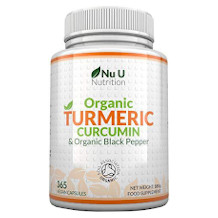
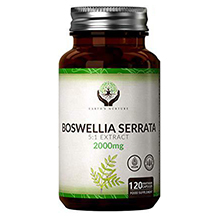
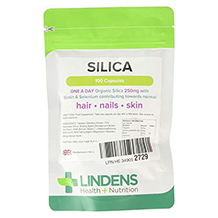
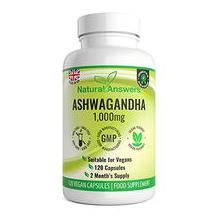
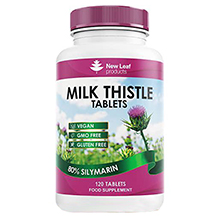
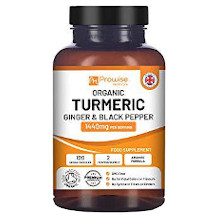
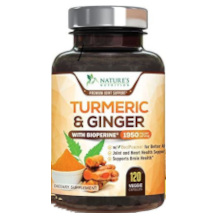
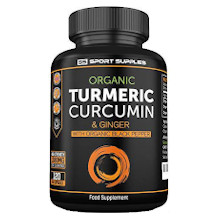
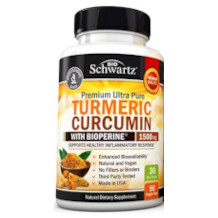
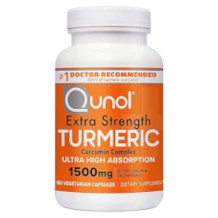
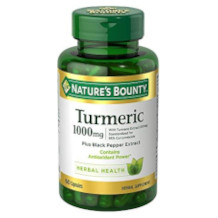
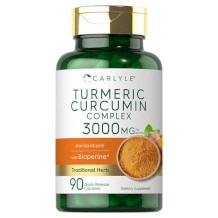

 3,881 reviews
3,881 reviews
